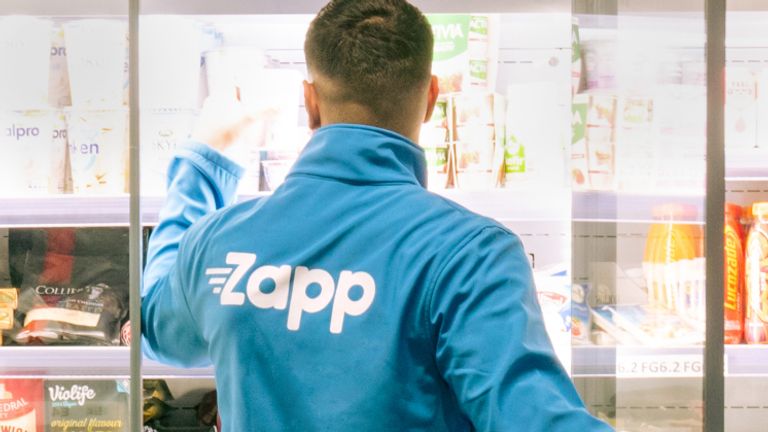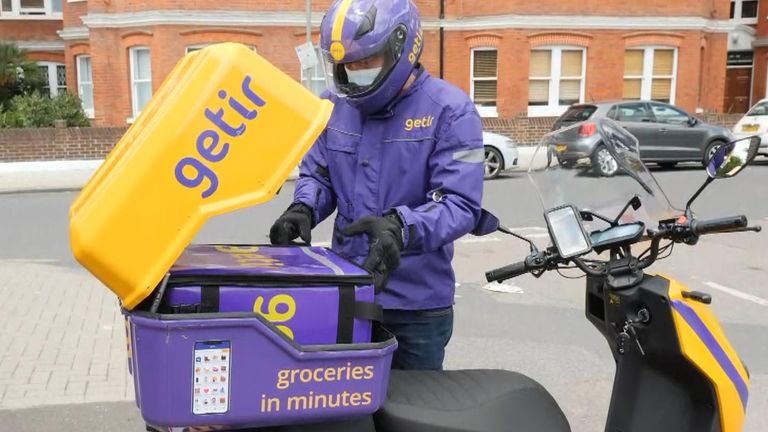Singapore fund backs $200m bet on fast grocery delivery service Zapp
A Singaporean state investment fund is backing one of the new breed of rapid grocery delivery apps which have devoured billions of dollars of funding in a race to grab market share.
Sky News has learnt that the Asian city state’s Government Investment Corporation (GIC) is jointly leading a roughly-$200m (£147m) fundraising for Zapp, which launched just 18 months ago.
Sources said the new capital would also include contributions from existing investors Lightspeed Venture Partners and 468 Capital, two major backers of early-stage companies.
Zapp’s fundraising has yet to close but could be announced as soon as next month, they added.
The company’s valuation is unclear.
Prior to this Series B round, Zapp had raised $100m (£73.5m) in funding.
Securing such a substantial pool of capital would underline the land-grab taking place among a cluster of start-ups which have launched in Europe in recent years.
They include Getir, Gorillas and Gopuff, all of which have built an international presence through launches and corporate acquisitions.
Zapp, which has been advised by JP Morgan, the Wall Street banking giant, on its funding round, was founded in London by Joe Falter and Navid Hadzaad.
It promises to deliver grocery and other essential items to customers’ doorsteps within 20 minutes, and operates around the clock.
Zapp operates its own dark stores, which exist solely to fulfil online orders, in affluent London areas including Chelsea, Fulham, Hammersmith and Notting Hill.
Other so-called Zappstores – locations from which customer orders are picked – are located in cities such as Manchester and Amsterdam.
Last summer, it struck a deal to back the Champions League winners, Chelsea, as part of efforts to differentiate itself in an intensely crowded market.
It is attempting to address consumer concerns about the sustainability of such on-demand platforms by partnering with the food-waste app Olio.
The company has also opened a 25,000 square foot distribution centre in West London as it seeks to operate a vertically integrated model.
Insiders have said that two-thirds of Zapp’s customer orders are profitable, and that its business in London was growing at double-digit percentage rates month-on-month.
The UK – and London in particular – have become a key battleground for the emerging rapid delivery sector, which is placing a bold bet on consumers’ desire to receive products little more than ten minutes after ordering them.
The sector is already showing signs of financial strain, with Dija, a UK-based start-up, surrendering its independence and selling to Gopuff of the US.
Weezy, another early-stage player, recently sold itself to Getir, which was reported this month to be raising new funds at a $12bn valuation.
Zapp declined to comment.




